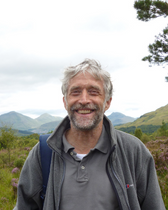George Pattison
University of Glasgow

An Anglican priest and scholar, George Pattison studied theology at the University of Edinburgh, followed by a Ph.D. on ‘Kierkegaard’s Theory and Critique of Art’ at the University of Durham. After fourteen years in parish ministry he became Dean of King’s College, Cambridge in 1991. Subsequently he was Lector in Practical Theology at the University of Aarhus, Denmark (2002-3); Lady Margaret Professor of Divinity, University of Oxford (2004-2013), and 1640 Professor of Divinity, University of Glasgow (2013-2019). He has also held visiting posts and fellowships at Copenhagen, Stanford, Dartmouth College, Erfurt, and St. Andrew’s. His professional interest in Russian religious thought, originally roused by undergraduate lectures at Edinburgh, developed during the 1990s through teaching Dostoevsky for a 1st year theology paper at Cambridge University. This led to a close collaboration with Dr Diane O. Thompson with whom he convened the conference ‘Reading Dostoevsky Religiously’ (Glasgow 1995), the papers from which were published under the title Dostoevsky and the Christian Tradition (CUP 2000). With Dr Aileen Kelly he convened a research project on ‘Religion in Post-Soviet Russia’ (King’s College Research Centre, 1997-8). From1999 he enjoyed several collaborations with the St Andrew’s Biblical-Theological Institute in Moscow, beginning with a one-week introductory course on the philosophy of religion (published as A Short Course in the Philosophy of Religion, SCM Press, 2001) and participating in several of the Institute’s conferences and publications. In Oxford he introduced and led a paper on Dostoevsky at 3rd year undergraduate level. He has contributed papers on Dostoevsky, Berdyaev, and Shestov to a number of publications. With Caryl Emerson and Randall Poole he co-edited the Oxford Handbook of Russian Religious Thought (OUP 2020).
Throughout his career, his main research focus has been on the religious aspect of existentialism, taking the term in its broadest sense, with special emphasis on Kierkegaard, Dostoevsky, Heidegger, and Berdyaev. His studies in this area feed into his main systematic interest, namely, the fundamental-theological hermeneutic of religious existence, where the Russian tradition offers decisive insights.
